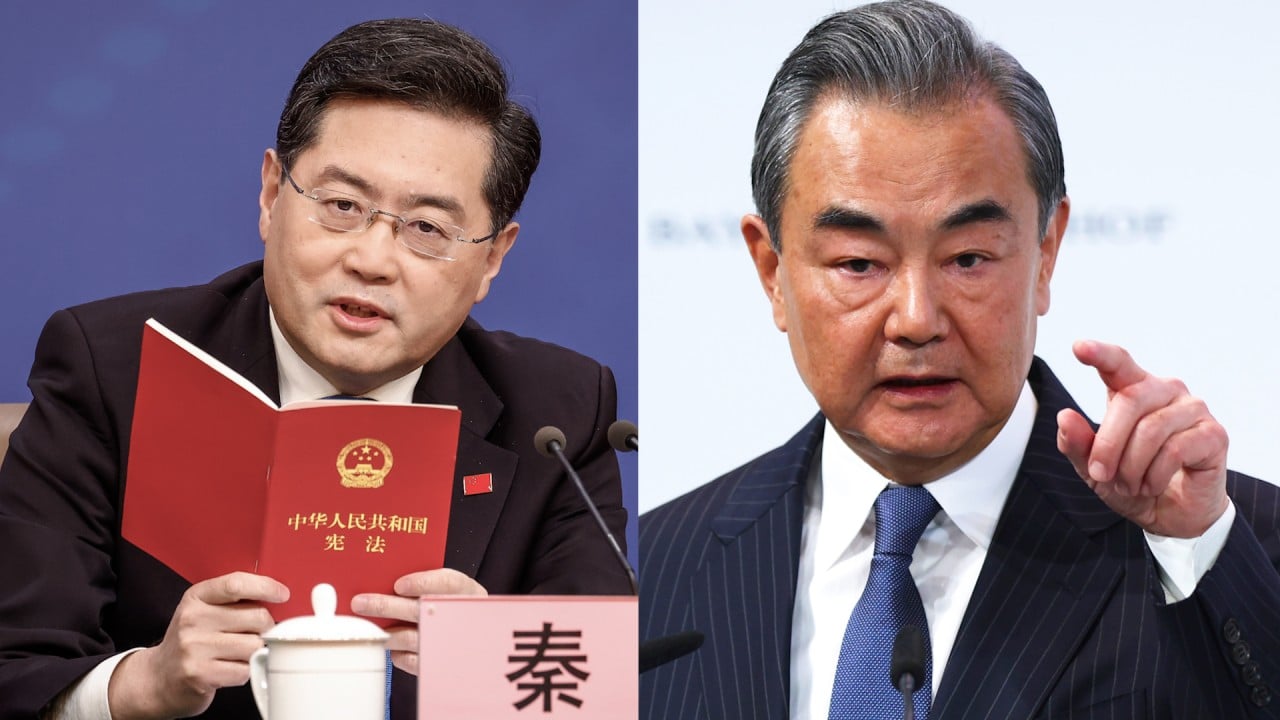
Beijing keeps focus on security, corruption and ‘worst-case scenarios’
- Politburo calls for ‘effective measures to prevent and defuse major risks’ during meeting to review inspections of SOEs
- Analyst says Xi Jinping’s priorities haven’t changed, with anti-graft campaign ‘a whip to spur cadres to move forward in his direction’
“It is crucial to coordinate both development and security, establish bottom-line thinking to deal with worst-case and extreme-case scenarios, take effective measures to prevent and defuse major risks, and firmly maintain the bottom line of safety,” according to a readout of Wednesday’s meeting from official news agency Xinhua.
On Wednesday, the Politburo – the party’s top decision-making body – called for a further consolidation of political loyalty and for stronger control by the party. It also urged more support for state-owned enterprises and called on financial institutions to boost support for the real economy.
The Politburo said the recent inspections had proven to be “an effective method to identify and solve problems”. It said such inspections and any follow-up action to tackle problems should be seen as a way for the organisations to strengthen their loyalty to the party leadership, according to Xinhua. The organisations were urged to “conscientiously” fulfil any duties and obligations they were tasked with.
In addition, the Politburo said the inspections would be an effective way to improve the SOEs so that they carried out key functions better and were more competitive, and to ensure that financial enterprises better served the real economy and national strategies.
Qin, who disappeared from public view in June, was removed as foreign minister in July without explanation. He has retained his title as a state councillor.
Li, also a state councillor, has not been seen in public since the end of August, with no reason given by Beijing. Li did not attend another meeting chaired by Xi on Wednesday, according to state television footage. Li and Qin were the only two state councillors absent from that meeting.
Alfred Wu, an associate professor at the National University of Singapore’s Lee Kuan Yew School of Public Policy, said many were hoping Beijing would give more attention to China’s struggling economy. But the Politburo meeting suggested the focus remains on security and party discipline.
“It shows Xi’s emphasis has not changed. He continues to see national security and party affairs as the top priorities while leaving economic development to his key lieutenants – it seems to indicate that Beijing has, and continues to find, security problems,” Wu said.
“Anti-corruption is Xi’s major political achievement and an effective mobilisation tool within the party. It is not only a broom that sweeps away corruption within the party, but also a whip to spur cadres to move forward in his direction.”
Professor Xie Maosong, a senior researcher with the National Strategy Institute at Tsinghua University, said party discipline, corruption and state security were intertwined and had to be tackled together.
“When the party lapses in its discipline, there will be rampant corruption,” Xie said. “Corrupt officials are the weakest link in China’s overall security as foreign intelligence agencies might hold their corruption deeds – including affairs – as leverage to force them to give crucial information.”
“We continue to see many foreign attempts to undermine China and our top leadership, while China and the US start to re-establish dialogue,” Xie said.
“Some, in terms of rumours, are trying to drive a wedge between the party leadership to create distrust; some are attempts to obtain critical information,” he said. “China simply cannot let its guard down.”


